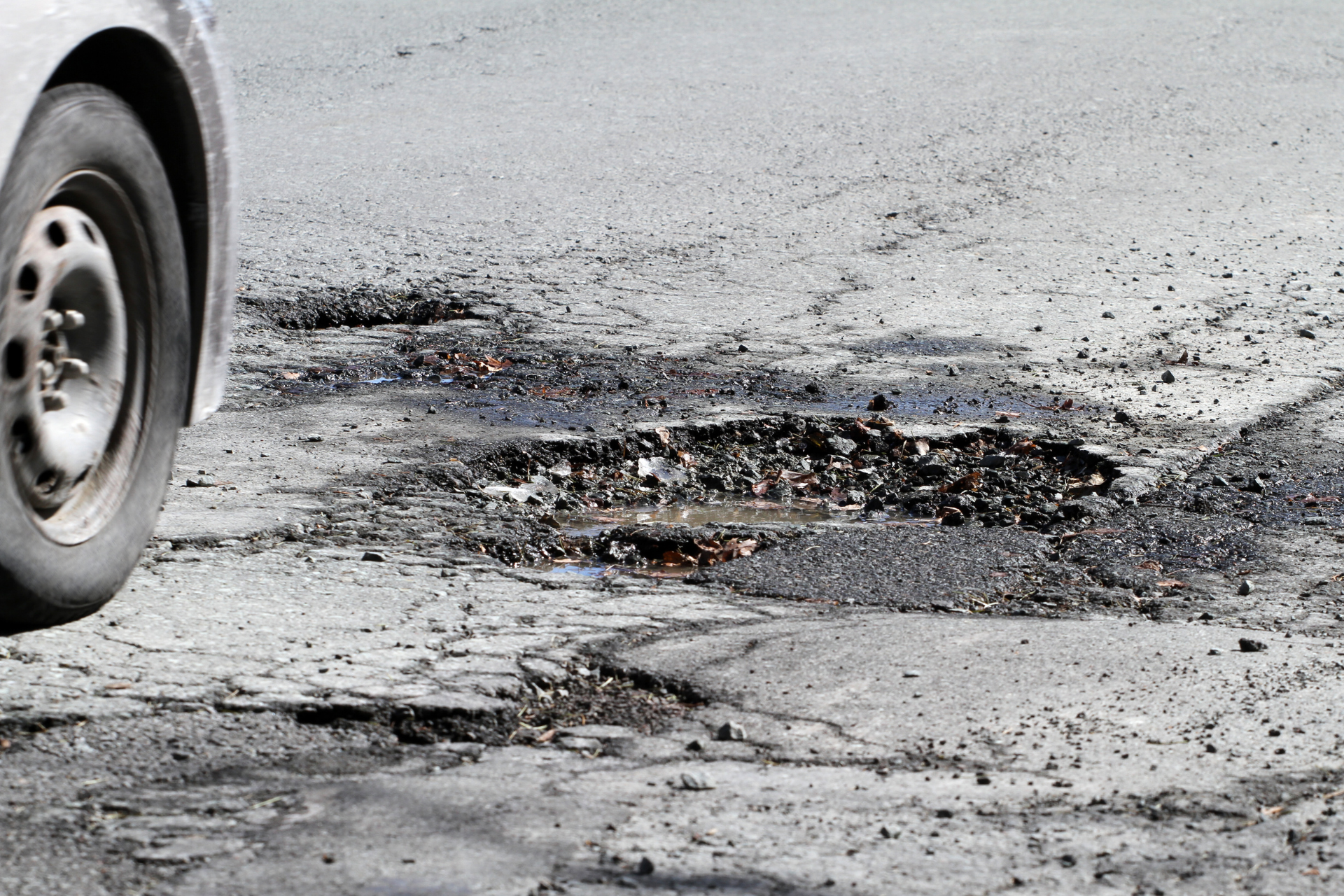
Why You Should Avoid Potholes on the Road
January 22, 2021
Ka-chunk! Nothing’s worse than hitting a deep pothole at full speed! Those drink-spilling, tooth-jarring pits in the road can make driving down certain roads unpleasant at best. But they can also take a toll on your vehicle and its tires, wheel bearings, and suspension system. Oh, and a big pothole could also damage your muffler and exhaust system. Yikes! With all the unfortunate ways a pothole can damage your car, truck, or SUV, it’s best to avoid them.
Car Damage from Potholes
Let’s review the immediate possibilities for pothole damage:
· Punctured Tire
· Bent Rims
· Suspension Damage
· Exhaust damage
As you can see, these are some of the most important and expensive items to repair on a vehicle. So, saving money goes to the top of the list of reasons why you should avoid potholes!
Tires can stand the test of time and take a beating, but even so, a big pothole or curb is hidden under the now can punch a hole in your tire or its sidewall. You won’t get very far with a flat, so if this happens to you, be prepared by knowing how to change a tire or by calling roadside service if that’s available for you.
In newer models of vehicles, wheel rims are aluminum and can dent fairly easily. If you hit a pothole and the tire blows, it’s highly possible your wheel rims bent due to the pothole damage. Bent rims can damage tires and affect how your vehicle drives.
Steering can become more challenging if you hit a lot of potholes. The more hazards you hit, the more likely it is that your tires go out of alignment. Alignment helps keep your tires pointing straight ahead. Alignment and rotation are important parts of maintaining the life of your tires.
Depending on your vehicle, a pothole can even damage the underside of your car. The exhaust system, including your muffler, could be a casualty of a pothole. Even worse, hitting a huge divot in the road can dent, scrape or puncture another critical part of the undercarriage.
Repairing one or more of these items can be a pretty big deal, costing you hundreds of dollars. Not to mention wear and tear on your shocks and struts. When you hit a pothole, you may be able to claim the damage on your insurance, but you’re much better off avoiding potholes if possible.
How to Avoid Potholes
With all the ways a pothole can put the hurt on your car—and your car care budget—you will want to avoid potholes. There are a few tips you can employ to make it easier to avoid potholes and the havoc they can wreak on your car.
1. Drive slower. Take your time to drive a little more carefully, and you could avoid more potholes. Reducing your speed allows you to inspect the road ahead of you, allowing you to correct your path to avoid potholes. When it’s raining or snowing, you’ll need to go slow, anyway, so make it a habit to bring your speed under control year-round so you can gently go around potholes.
2. Leave room ahead of you. While you’re driving more cautiously, remember to leave room between you and the car ahead of you. Heavy traffic can make it more difficult to spot potholes before you hit them, however, when you leave extra space, you open up your view of the road and any hazards that are in your path.
3. Check your tires. Because your tires are the first line of defense between your car and the road, you will want to ensure your tires are road-ready. Are they properly inflated? Low tire pressure or high tire pressure can be problematic when you hit a big pothole. Are your tires in good condition? Check the tread while you’re checking the air pressure to make sure they are ready for Iowa’s unpredictable weather.
4. Report potholes. Some cities in Iowa provide ways you can report potholes to their road crews. For example, you can email the City of Cedar Rapids about potholes.
What to Do If You Hit a Pothole
If you hit a large pothole and are worried about damage to your vehicle, pull over at a safe place and check out your vehicle for damage. Tires should still be inflated, and nothing should appear bent, scratched, or dented. Hopefully, nothing is leaking out of your car.
If you feel pulling or shaking in the steering system or hear something different when you drive the car after hitting a pothole, contact Waln Repair & Collision Center for an evaluation of the damage. Your car may have taken the brunt of the pothole, and it’s a good idea to check it out.
The collision coverage on your vehicle may help pay for pothole damage. You might want to review your auto insurance policy for details now and start practicing our tips for avoiding potholes.